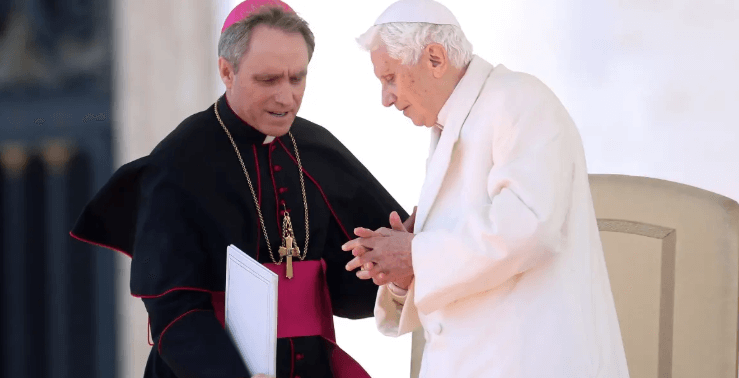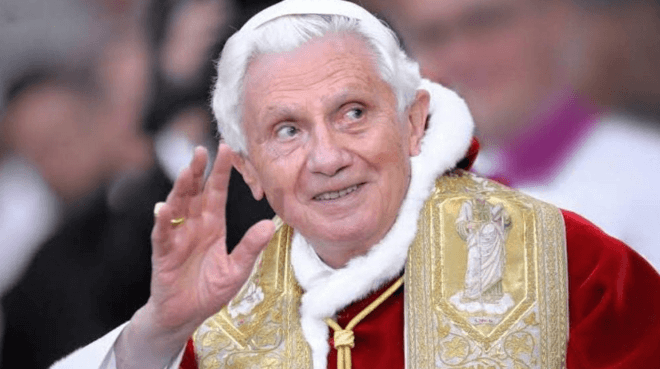What Is the Pope’s Net Worth

The question of the Pope’s net worth invites a complex exploration of both personal and institutional finances within the Vatican. While the Pope himself embodies a lifestyle of modesty and service, the Vatican’s extensive assets—including valuable art, real estate, and investments—complicate any straightforward assessment of wealth. This juxtaposition raises intriguing questions about the role of financial resources in a religious context and how they align with spiritual leadership. What does this mean for our understanding of wealth in relation to faith? The answers may reveal more than mere figures.
Overview of the Vatican’s Finances
Examining the financial landscape of the Vatican reveals a complex structure that intertwines religious, cultural, and economic dimensions.What Is the Pope’s Net Worth
Vatican budgeting reflects a delicate balance between maintaining its spiritual mission and addressing ongoing financial challenges.
The institution grapples with fluctuating revenues, a reliance on donations, and the need for prudent fiscal management to ensure sustainability while fulfilling its global religious responsibilities.
The Pope’s Personal Wealth
The Pope’s personal wealth is often a subject of curiosity, particularly when distinguishing between his individual assets and the financial resources of the Catholic Church as a whole.
Understanding the nature of papal assets requires an examination of both the Pope’s personal finances and the broader context of Church wealth.
This distinction is crucial in assessing the true financial standing of the Pope in relation to the extensive resources controlled by the Vatican.
Papal Assets Overview
Papal assets encompass a range of financial holdings and properties that contribute to the overall personal wealth of the Pope, though the exact figure remains largely undisclosed.
This wealth includes valuable papal treasures and numerous religious artifacts, which hold both monetary and historical significance.What Is the Pope’s Net Worth
Such assets reflect the Catholic Church’s extensive legacy, yet the Pope traditionally maintains a humble lifestyle in alignment with his spiritual mission.
Personal Finances Explained
In understanding the Pope’s personal wealth, it is essential to differentiate between his individual assets and those held by the Vatican as an institution.
The Pope’s financial management reflects a commitment to ethical considerations, emphasizing humility and service over personal gain. His limited personal wealth is often overshadowed by the vast resources of the Vatican, highlighting the distinction between personal and institutional finances.
Church Wealth Vs. Personal
Amid the extensive resources managed by the Catholic Church, the Pope’s personal wealth remains remarkably modest.
See also What Is Joe Budden’s Net Worth
Unlike the vast sums generated through church donations, his finances are largely limited to a humble salary, reflective of clergy salaries globally.
This distinction underscores the Pope’s commitment to a life of service, prioritizing the Church’s collective mission over personal accumulation of wealth.
Vatican City Assets
Vatican City possesses a unique portfolio of assets that reflects its longstanding historical wealth and influence.
This includes significant real estate holdings both within the city-state and across various global locations.
Understanding these assets is essential for comprehending the financial foundation that supports the Vatican’s operations and initiatives.
Historical Wealth Overview
Throughout history, the wealth of the Vatican has been a subject of both intrigue and speculation, shaped by a complex interplay of religious,What Is the Pope’s Net Worth cultural, and economic factors.
The historical context reveals a wealth evolution influenced by donations, art patronage, and political power.
This accumulation of assets has positioned the Vatican as a significant entity, navigating the balance between spiritual mission and financial sustainability.

Real Estate Holdings
A significant portion of the Vatican’s wealth is derived from its extensive real estate holdings, which encompass both properties within Vatican City and various investments across the globe.
The Vatican’s real estate portfolio is managed strategically, including:
- Historic buildings in Rome
- Investments in commercial properties
- Land holdings in various countries
- Revenue from rental properties
This diversified approach underscores effective property management.
Investments and Holdings
The Pope’s investments and holdings reflect a complex interplay of religious mission and financial strategy. Papal investments often include stocks, bonds, and other assets aimed at preserving the Vatican’s financial stability. Below is a table illustrating the nature of these religious holdings, highlighting their significance in supporting the Church’s global outreach and humanitarian efforts.
| Type of Investment | Purpose | Impact |
|---|---|---|
| Real Estate | Generate revenue | Fund charitable work |
| Stocks | Financial growth | Support mission work |
| Bonds | Stability | Maintain liquidity |
| Donations | Community support | Empower local projects |
Income Sources for the Vatican
Vatican City derives its income from a diverse array of sources, each contributing to the financial sustainability of the Holy See.
Key revenue streams include:
- Vatican donations from around the world.
- Income generated from church investments and religious assets.
- Fundraising initiatives supporting global outreach and philanthropic efforts.
- Financial support for clergy salaries, ensuring organizational stability.
The Pope’s Lifestyle and Expenses
Living a life of simplicity and humility, the Pope’s lifestyle reflects his commitment to the values of the Catholic Church.
His papal lifestyle emphasizes a minimalist approach,What Is the Pope’s Net Worth often eschewing luxury expenses for humble living.
See also What Is Joe Buck’s Net Worth
The Pope prioritizes charity contributions, showcasing spiritual wealth over personal indulgences.
Public perception generally aligns with this ethos, reinforcing the belief that leadership should embody compassion and service.
Financial Transparency and Accountability
Maintaining financial transparency and accountability is crucial for the Vatican, particularly in the context of the Pope’s leadership.
Effective governance requires adherence to financial ethics and robust accountability measures.
Key practices include:
- Regular asset disclosure
- Implementation of transparency practices
- Ethical fundraising initiatives
- Revenue transparency audits
These measures bolster financial stewardship and enhance public trust in the Vatican’s financial governance.
The Role of Wealth in Spiritual Leadership
Wealth plays a multifaceted role in spiritual leadership, influencing both the perception and the effectiveness of leaders in religious contexts.
Effective leaders navigate their wealth with spiritual humility, prioritizing ethical stewardship and material detachment. They bear moral obligations to ensure equitable wealth distribution, engage in faith-based philanthropy, and enhance community support, thereby fulfilling leadership responsibilities that resonate deeply with their congregations and promote collective well-being.
Conclusion
In conclusion, the Pope’s net worth cannot be easily defined, as it intertwines with the broader financial fabric of the Vatican. While personal wealth remains modest, the vast resources dedicated to charitable endeavors reflect a profound commitment to ethical stewardship. Like a lighthouse guiding ships through turbulent waters, the Pope’s leadership exemplifies the prioritization of spiritual wealth over material accumulation, underscoring the vital role of finance in facilitating a mission grounded in service and compassion.






